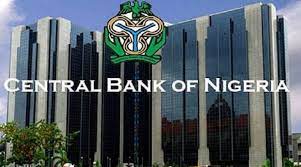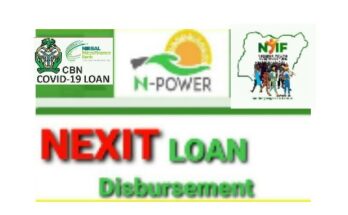The Economic Recovery Development Policy Loan II is the second in a programmatic series of two operations to support economic reform program and generate a sustainable recovery. The 100 Billion Economic Empowerment Fund – World Bank Grant Is open to all countries to receive.
The program supports post-COVID-19 economic recovery program and its efforts to implement critical structural reforms to strengthen the management and governance of public finances, improve transparency and accountability in the public sector, and facilitate the development of the private sector.
More importantly, the program will help improve the lives of the poor and vulnerable by supporting policy and institutional actions that not only protect lives and livelihoods but generate economic opportunities for people and promote better public service delivery.
The YEDP aims to fix the triple-barreled constraints of insufficiency, high cost and inadequate term of capital usually faced by youth entrepreneurs and startups. It offers credit of up to 20K to eligible youth or 10 million for groups of three to five youths.
The tenor broadly depends on project complexity and cash flow, but is between one year for working capital loan and three years for term loan.
This was in recognition of the fact that there was no better segment of the Nigerian population than the youths to propel us to our much-needed economic recovery and diversification.
In the third quarter of 2015, the National Bureau of Statistics (NBS) indicated that of the 36.3 million youths representing 48% of the nation’s labour force, 13.6 million or 37.7% of them were either unemployed or underemployed.
This situation could not be allowed to fester given that many of our youths had very bright ideas and big dreams but are constrained by scarce seed funding.
The YEDP aims to fix the triple-barreled constraints of insufficiency, high cost and inadequate term of capital usually faced by youth entrepreneurs and startups. It offers credit of up to $ 20K million to eligible youth or $ 10 million for groups of 3 – 5 youths.
Tenor broadly depends on project complexity and cash flow but is between 1 year for working capital loan and 3 years for term loan. The collateral requirements are quite simple: academic and NYSC certificates, third party guarantees and other movable assets.
Those who possess a verifiable tertiary institution certificate, and artisans with First School Leaving Certificate or a technical certificate or accredited proficiency certificate from the National Board for Technical Education (NBTE), whichever is applicable.
Beneficiaries of the The 100 Billion Economic Empowerment Fund – World Bank Grant can be encouraged to migrate to other CBN interventions to obtain more funding if they utilize the YEDP facility properly.
The Guidelines for the programme indicate that activities eligible for financing include startups and expansion projects in agricultural value chains (fish farming, poultry, snail farming, etc.), cottage Industry, creative industry (tourism, arts and crafts) and Information and Communications Technology (ICT) among others.
REQUIREMENTS FOR THE GRANT
The worldbank had outlined in the NYIF framework, the businesses and activities that are legally allowed to be eligible to participate in the scheme. These include technology/innovation, agriculture and its related value chain, green economy and the renewable energy sector.
The Guidelines for the programme indicate that activities eligible for financing include startups and expansion projects in agricultural value chains (fish farming, poultry, snail farming, etc.), cottage Industry, creative industry (tourism, arts and crafts) and Information and Communications Technology (ICT) among others.
Others are manufacturing, hospitality/tourism, construction, logistics and supply chain, healthcare value chain, the creative sector, trading and services, as well as others that would be certified by the CBN from time.
Furthermore, it noted that beneficiaries of other government loan schemes that remain unpaid are also not eligible to participate. The loan tenor, according to the framework, is a maximum of 5 years depending on the nature of the business and the assets acquired.
World Bank offers Nigeria $400m loan for COVID-19 vaccines
The Board of Directors of World Bank has approved a $400m credit alongside financing from the International Development Association to Nigeria to boost COVID-19 vaccination in the country.
A statement titled ‘Nigeria scales up its COVID-19 vaccination with new funding for vaccine purchase and deployment’ and published on the bank’s website on Friday contained this.
The statement read in part, “The government of Nigeria today received approval from the World Bank Board of Directors for a $400m credit in additional financing from the International Development Association to provide upfront financing for safe and effective COVID-19 vaccine acquisition and deployment within the country.
This will be implemented as part of the COVID-19 Preparedness and Response Project.
“The additional funding is designed to ensure COVID-19 vaccination of 40 million Nigerians, increasing the rate of vaccination to up to 50 per cent.
“Building on the government’s plan to break the chain of local transmission of COVID-19 and limit the spread of the virus, the original COVID-19 response programme will be expanded to enable equitable access to purchase affordable COVID-19 vaccines for 18 per cent (40 million) of Nigeria’s population and support effective vaccine deployment to 50 per cent (110 million) of its citizens.”
World Bank Country Director for Nigeria, Shubham Chaudhuri, said, “As the government continues to tackle the effect of a third wave of the pandemic, it is crucial it continues to vaccinate its citizens in addition to the use of non-pharmaceutical interventions to avoid the dreadful consequences of another lockdown that left in its wake an economic toll the country is still grappling with.”
He added, “This additional funding would ensure that the Nigerian government has the necessary financial resources to keep its vaccination drive going.
The statement further disclosed that the additional financing would be used to purchase and deploy COVID-19 vaccines, boost relevant health systems and prepare for future health emergencies.
“The additional financing will allow Nigeria purchase and deploy COVID-19 vaccines, strengthen relevant health systems that are necessary for a successful deployment and to prepare for future health emergencies,” it said.
It added, “Critically, it will permit the acquisition of vaccines to support Nigeria’s objective to have access to vaccines under the right conditions (of value-for-money, regulatory approvals, and delivery time among other important features).
“This will ensure that the government meets its plans to vaccinate 51 per cent of its population in two years.”
The statement also quoted World Bank Task Team Leader for the project, Ayodeji Ajiboye, to have said, “Recognising that there is currently excess demand for vaccines from both high-income and lower-income countries.
The additional funds would acquire the vaccine at the earliest, strengthen the capacity of all states and the Federal Capital Territory to deploy the vaccines, as well as strengthen the country’s health system interventions such as enhancing health-emergency response capacity of health workers, cold chain equipment, disease surveillance, data management and use, and laboratory testing for the long-term.”


